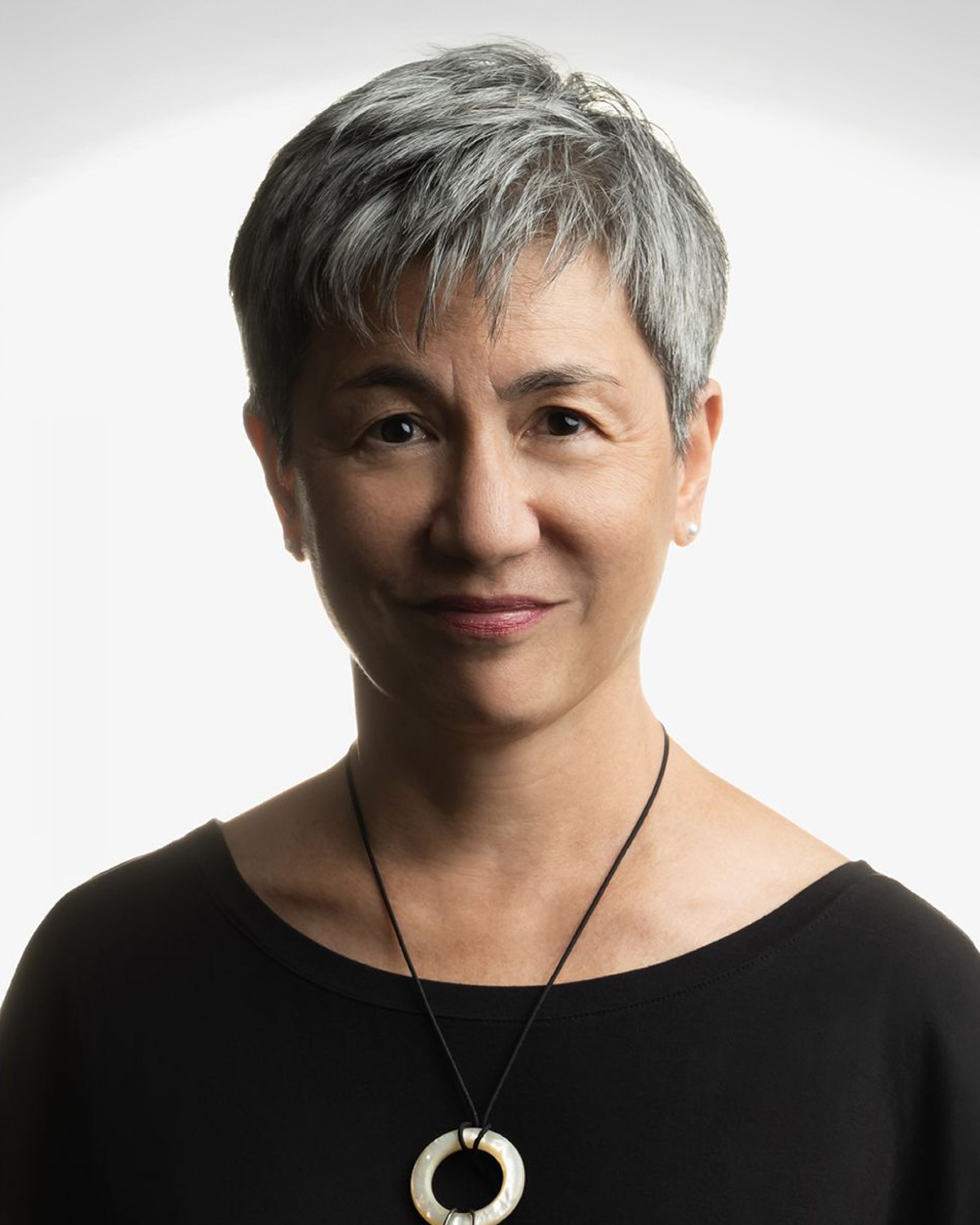Kimiko Hahn is the author of eleven books of poems, including: The Ghost Forest: New and Selected Poems (W. W. Norton, 2024); Foreign Bodies (W. W. Norton, 2020); Brain Fever (WWN, 2014), and Toxic Flora (WWN, 2010), all collections prompted by science; The Narrow Road to the Interior(WWN, 2006), a collection that takes its title from Basho’s famous poetic journal; The Unbearable Heart (Kaya, 1996), which received an American Book Award; Earshot (Hanging Loose Press, 1992), which was awarded the Theodore Roethke Memorial Poetry Prize and an Association of Asian American Studies Literature Award.
The Ghost Forest offers a contemplative and haunting narrative of a writer’s artistic journey through craft and form while illuminating personal themes influenced by her Japanese American heritage. Exploring the mysteries of science, nature and the experiences of contemporary womanhood, Hahn both reinvents classic Japanese forms such as the zuihitsu and tanka and experiments with traditional Western ones, among them the villanelle, sestina, and glosa. Nicole Sealey hailed the collection as: “An evocative braided autobiography in poetry that welcomes miscellany and disorder and reveals a mind as vast as the terrains it traverses.”
Hahn’s major contribution to American literary scene may be the introduction of a genre that is neither poetry nor prose: the Japanese zuihitsu. In the Asian American Writer’s Workshop journal, The Margins, Dana Isokawa wrote: “Hahn laid the groundwork for the zuihitsu in American poetry, in particular with her collection The Narrow Road to the Interior (W.W. Norton, 2006). Shortly after the book came out, Hahn shared in a BOMB interview that she initially studied zuihitsu in an academic setting but started writing them in the nineties after being invited to do so for a reading at the Poetry Project celebrating Shōnagon’s The Pillow Book. While the zuihitsu is frequently compared to an essay, Hahn showed its possibilities as a poetic text.” The writer Rajiv Mohabir has said of her: “[The zuihitsu] was brought into the world of American poetry through the work of Kimiko Hahn and it resists simple genre definition, relying on temperature and voice, arrangement and precision.” She wrote a 2021 article for the American Poetry Review, “The Zuihitsu and the Toadstool” and, at present, she and Dana Isokawa are co-editing an anthology of zuihitsu, from the Japanese classics on to contemporary American versions (forthcoming W.W. Norton, 2026).
As part of Hahn’s service to the CUNY community, she initiated a Chapbook Festival that became an annual event co-sponsored by major literary organizations. Since then, she has added chapbooks to her list of publications: (Write it!): a collection of odes, Brittle Process, Brood, Ragged Evidence, A Field Guide to the Intractable, Boxes with Respect, The Cryptic Chamber, and Resplendent Slug. In 2017, she and Tamiko Beyer collaborated on the chapbook Dovetail.
She takes pleasure in the challenges of collaboration: writing text for film including: Coal Fields, the 1985 experimental documentary by Bill Brand; Ain’t Nuthin’ but a She Thing a 1995 HBO special; and Everywhere at Once, a 2008 film based on Peter Lindbergh’s still photos and narrated by Jeanne Moreau).
Hahn’s honors include a Guggenheim Fellowship, PEN/Voelcker Award, Shelley Memorial Prize, a Lila Wallace-Reader’s Digest Writers’ Award as well as fellowships from the National Endowment for the Arts and the N.Y. Foundation for the Arts. She has taught in graduate programs at the University of Houston and New York University. Hahn has also taught for literary organizations such as the Fine Arts Work Center, Cave Canem, and Kundiman. From 2016-2019, Hahn was President of the Board of Governors, Poetry Society of America. In 2023, she was named a Chancellor for the Academy of American Poets and received The Poetry Foundation’s Ruth Lilly Lifetime Achievement Award. She will serve as New York State Poet from 2025-2027.
She lives in New York where she is a distinguished professor in the MFA Program in Creative Writing & Literary Translation at Queens College, The City University of New York.


